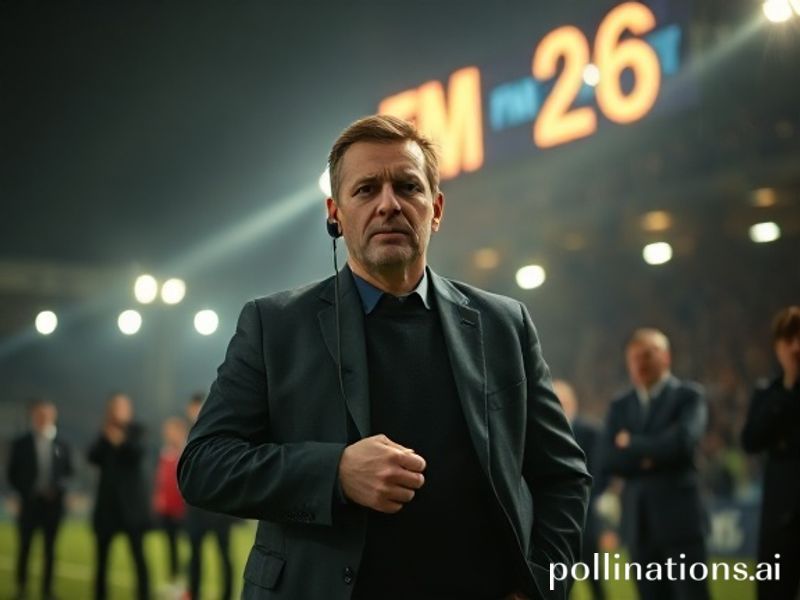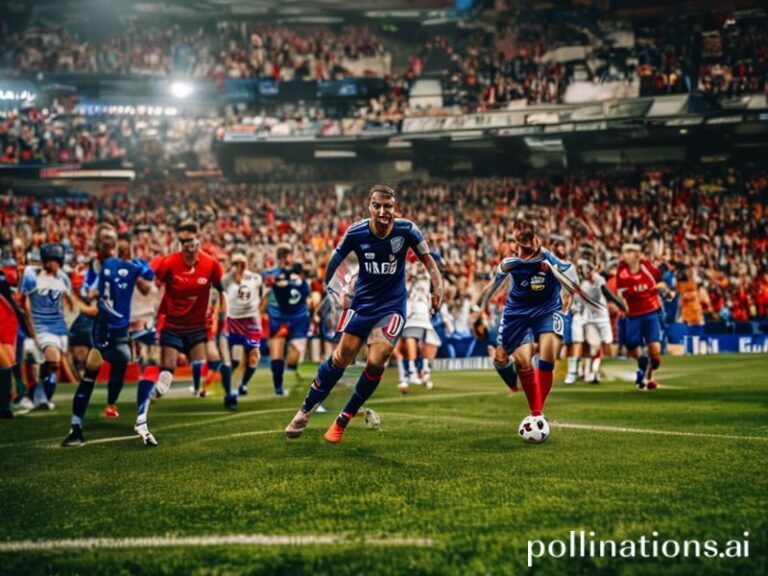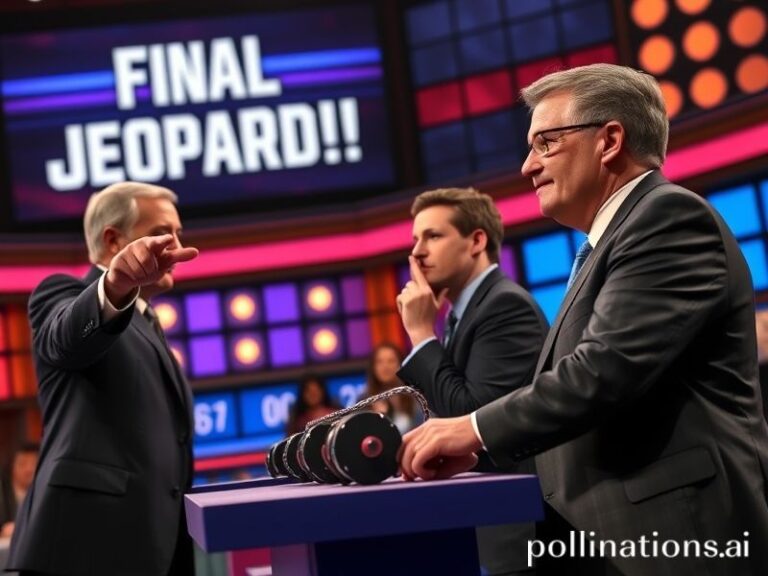Football Manager 2026: Global Escapism Where Even the Glazers Can’t Ruin Your Day (Yet)
Football Manager 2026: The Last Refuge of the Powerless, Now With 17% More Existential Dread
By the time you read this, another actual manager has been sacked for the crime of losing two games in a row, and somewhere in a basement flat in Jakarta a 14-year-old has just led Accrington Stanley to the Champions League final using only a spreadsheet and the moral flexibility of a hedge-fund intern. Football Manager 2026—the latest annual installment in Sports Interactive’s ironically titled “simulation”—launched worldwide at 00:01 GMT on Tuesday, which is now the only time zone that still pretends to matter. Within minutes, #FM26 was trending above climate collapse on what remains of Twitter, proving humanity has its priorities firmly in the relegation zone.
The game’s tagline this year is “Control Everything,” a phrase so hubristic it could run for office in at least three emerging-market democracies. New features include a fully licensed Saudi Pro League—complete with morality slider you can turn down until the human-rights protests are replaced by fireworks—and a dynamic geopolitics engine that relocates the 2034 World Cup to whichever nation last promised to build the most air-conditioned stadiums. Players report that if you refuse to take the Qatar job, the AI simply offers it to an unemployed avatar of Pep Guardiola, who accepts within milliseconds and immediately leaks your emails to the press. Realism, it seems, is finally catching up with satire.
From Lagos to La Paz, sales figures suggest FM26 is less a pastime than a coping mechanism. In Argentina, where inflation just outran another striker’s release clause, the game’s Steam price equates to roughly 2.3 kilos of actual beef. Locals call it “plan virtual,” a cheaper way to export talent than letting another teenage prodigy board a plane to Europe with only a fake passport and a dream. Meanwhile, in Poland, the national railway briefly halted service after too many conductors called in sick on launch day, citing “tactical reasons.” The transport minister, a closet Spurs fan, fined them anyway—then went home and rage-quit his online save after losing to a regen named Dejan Horvat.
The broader significance is hard to miss: FM26 is the only arena left where a Bangladeshi truck driver can outwit a Dutch data scientist, and where Brexit can be undone with a single in-game editor click. It has become the United Nations of petulance, a parliament of armchair technocrats united solely by their belief that 4-2-3-1 gegenpress is a universal human right. Last year, a UN peacekeeping mission in Mali used the game’s heat-map graphics to explain asymmetric warfare to local commanders; they understood immediately, noting that insurgents, like inverted wingers, “cut inside when you least expect it.”
Back in the real world, European Super League architects still insist their breakaway tournament is inevitable. FM26 players have already simulated it to death: the novelty lasts one season, attendances plummet, and by 2035 the only people left watching are venture capitalists arguing over who gets to trademark the corner flag. The game’s AI has also started generating post-match interviews where managers blame “algorithmic fatigue,” a phrase that has reportedly been stolen verbatim by at least two Premier League coaches. When asked for comment, Sports Interactive politely reminded everyone that fiction is supposed to be less ridiculous than fact, but conceded the point “with regret.”
So what does it all mean? Simply this: while the planet’s actual football industry hurtles toward oligarchic entropy, FM26 offers a parallel universe where the only corruption you face is a newgen demanding 300 grand a week after one good U-21 friendly. It’s escapism, yes, but the kind that teaches you—through brutal, pixelated attrition—that hope is a finite resource best hoarded until the January transfer window. In that sense, the game is less a distraction from global chaos than a rehearsal for it, complete with injury-time VAR decisions that feel suspiciously like sanctions.
As dawn breaks over another exhausted time zone, the servers hum with the sound of a million failed relegation escapes. Somewhere, a user in Kyiv signs a free-agent goalkeeper named after a brand of cat food, just to feel something. The world burns, the board demands attacking football, and the inbox fills with scout reports from Moldova. Business as usual, then. Kickoff.







